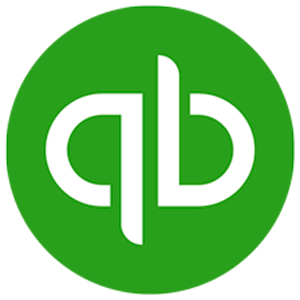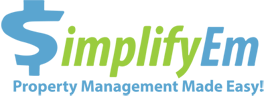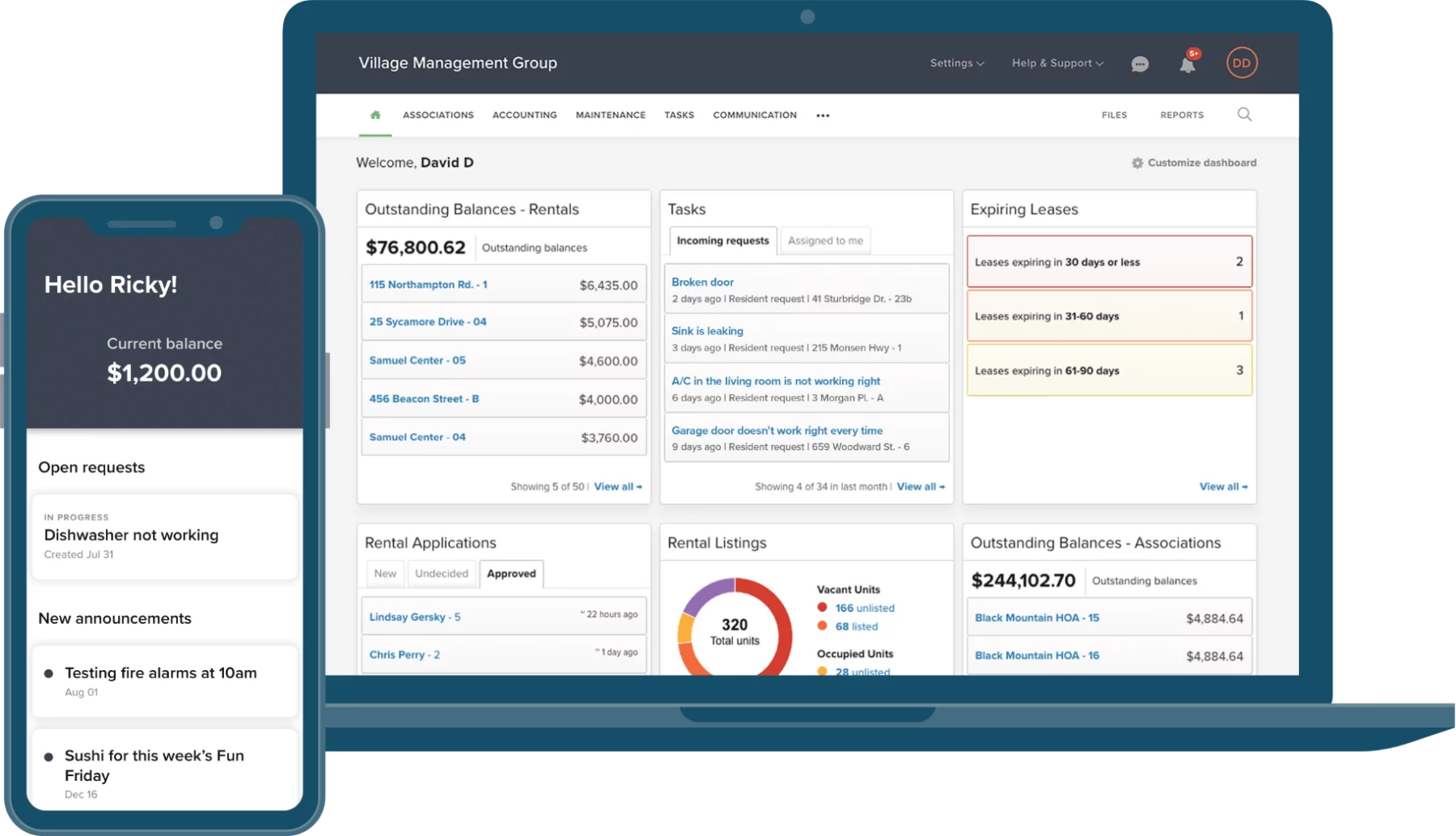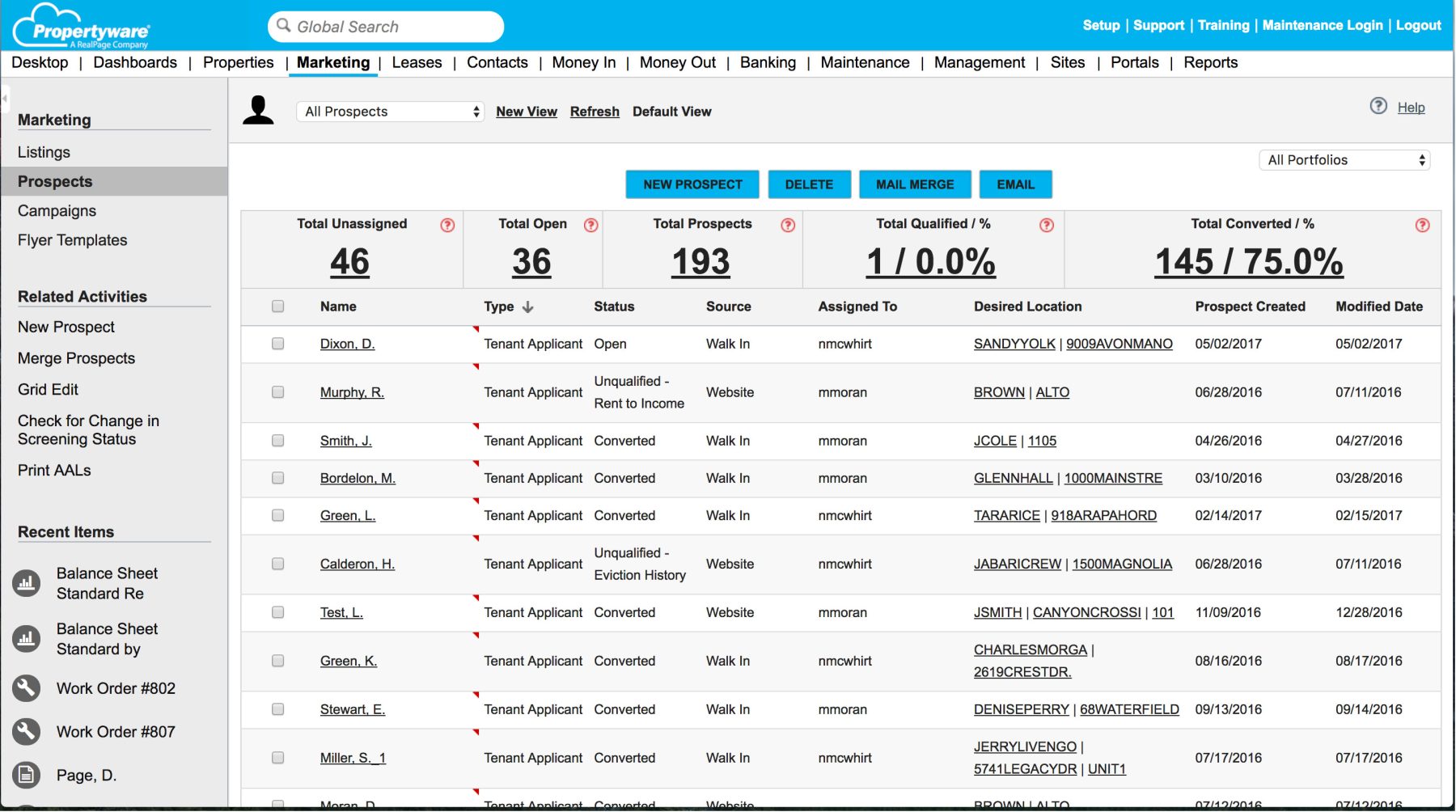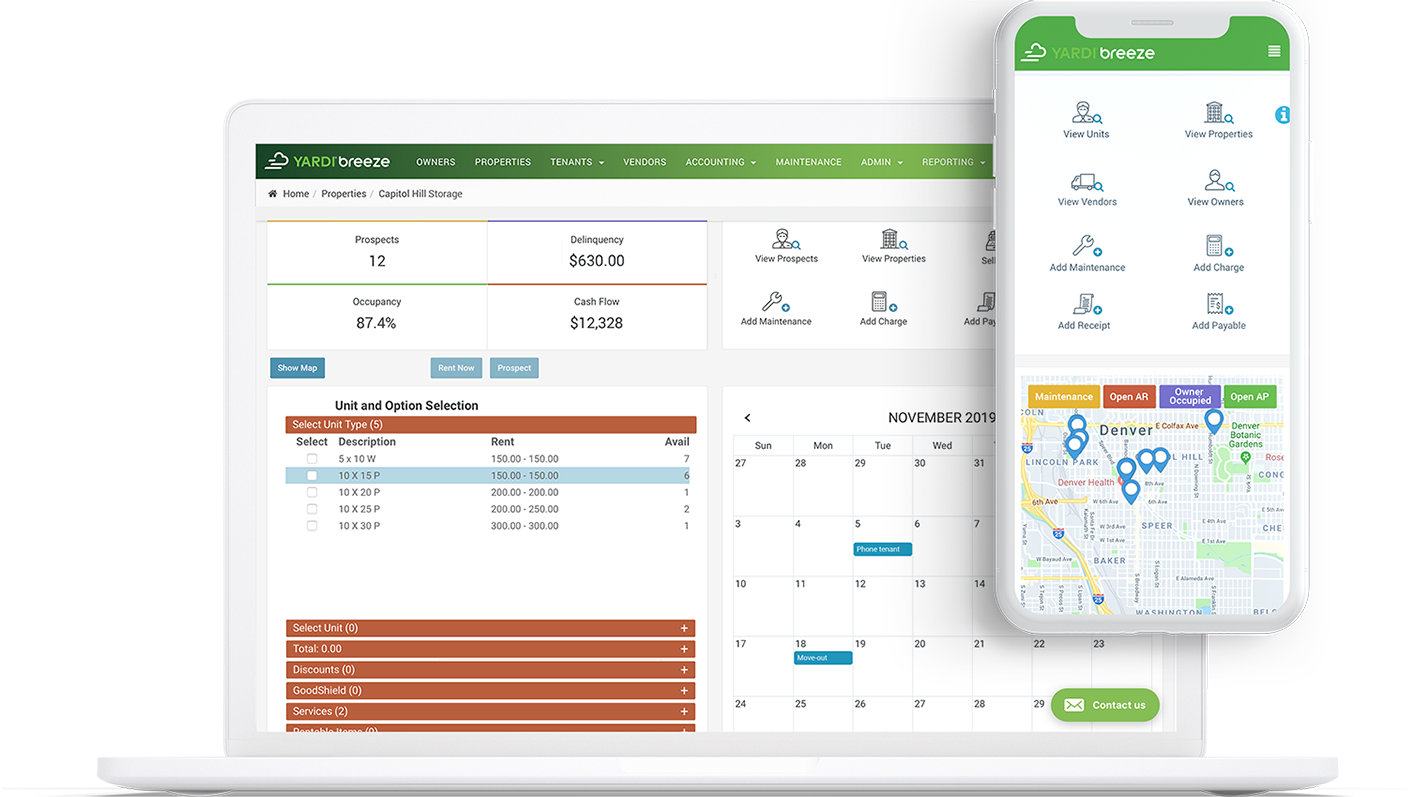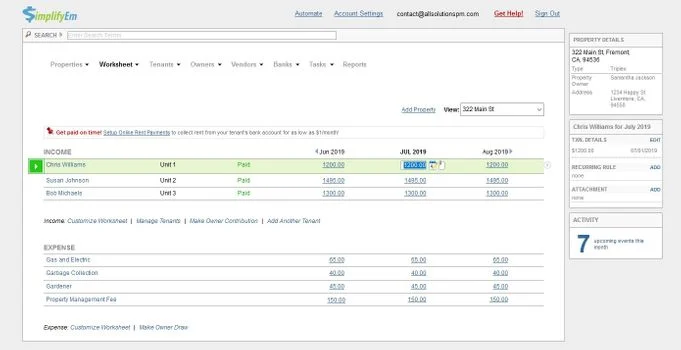In Canada, there are a large number of choices for property management software: from all-in-one options to specialized apps for specific functions, like rent collection. Whether you manage one property or many, this guide will help you narrow down what software to consider and ultimately, which is best for you.
In this guide you’ll learn:
- Available features and functionality of property management software
- Accounting and reporting
- Rentals and leasing
- Communication management
- Building maintenance
- Vendor tracking and accounting
- Marketing
- Key considerations when choosing a property management software

Best for day-to-day operations including leasing, maintenance, accounting, financial planning and budgeting.
For Canadian property managers, finding the right software can be the difference between success and constant headaches. Managing the job’s demands, including the needs of property owners, tenants, and trades is a full-time plus job. Property management software helps by automating processes, enhancing communication with owners and tenants, providing scheduling and accounting efficiencies, and improving time management.
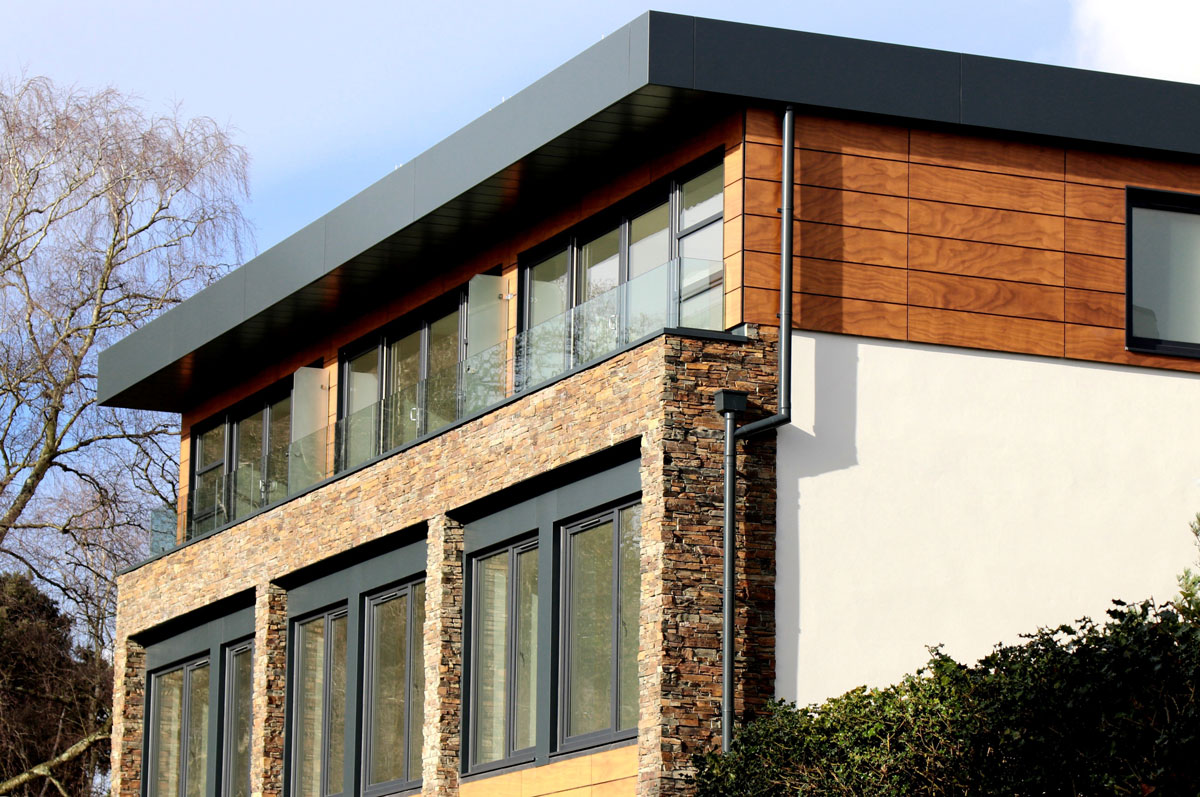
Property Management Software Features and Functionality
The list of features and functionality offered by property management software can be extensive. Before investing in software, it’s important to understand what features are offered and identify which ones are important for your specific needs
Accounting & Reporting Features
Occupancy Statistics – monitors and records occupancy status for each unit.
Online Payments – allows tenants to make rent payments conveniently and securely online. Check out Rotessa’s pre-authorized debit solution for recurring tenant bank payment.
General Ledger – a central repository for financial transactions, including income and expenses related to the managed properties.
Financial Reporting (Building) – financial reporting specifically at the building or property level. It allows property managers to assess the financial performance of individual properties separately.
Financial Reporting (Portfolio) – financial reporting aggregates financial data from multiple properties or a group of properties. This feature provides a comprehensive view of the overall financial performance of the entire property portfolio.
Rental & Leasing Features
Rental Application Automation – automates the rental application process, allowing potential tenants to submit their applications online. It streamlines the tenant screening and leasing process, saving time and reducing paperwork.
Tenant Screening – assists property managers in evaluating potential tenants. It typically includes background checks, credit checks, employment verification, and rental history verification.
Payment Tracking & Reminders – tracks rent payments and provide automated reminders to tenants for upcoming or overdue payments.
Renter’s Insurance – enables property managers to track and manage tenants’ insurance policies. It allows tenants to provide proof of renter’s insurance coverage, including policy details and expiration dates.

Communication Management Features
Resident Portal – a secure online platform where tenants can access and manage their rental information, communicate with property managers, and perform various tasks related to their tenancy.
Email & Text – built-in communication features that allow property managers to send email and text messages directly from the software platform.
Document Sharing – enables property managers to securely share and manage important documents with tenants. This can include lease agreements, move-in instructions, rules and regulations, community policies, and other property-related documents.
Violation Tracking – monitors and documents any lease violations or breaches of community rules by tenants.
Building Maintenance Features
Online Maintenance Requests – allows tenants to submit maintenance requests online. Tenants can describe the maintenance issue, attach photos or documents if necessary, and submit the request directly to the property management team.
Maintenance Management – manage and track maintenance tasks and work orders. It can include assigning tasks to maintenance staff or vendors, scheduling appointments, tracking progress, and updating the status of maintenance requests.
Vendor Tracking & Accounting – assists with managing vendor relationships and tracking financial transactions related to vendors. This includes managing contracts and agreements and recording payments.
Property Inspections – provides tools to schedule and document inspections, track inspection results, and generate inspection reports.
311 Call Center – provides a centralized platform to receive calls, log service requests, track progress, and communicate with tenants regarding their inquiries or non-urgent concerns.
Marketing Features
Website Builder – allows users to create and customize their property management websites. It provides templates, design tools, and content management capabilities to build an attractive and functional website.
Vacant Listing Amalgamation – consolidates and displays all vacant rental listings in one central location.
Rent Comparison – helps property managers determine competitive rental rates for their properties. The software collects and analyzes market data to provide insights into rent trends and comparable rental prices in the area.
Email & Social Media – allows property managers to send targeted emails and social media posts to prospective tenants or their existing tenant base. Property managers can create and schedule campaigns, segment their audience, track campaign performance, and analyze engagement metrics.
Although there is an extensive list of features and functionality available with property management software, they are not all required by every property manager. Narrowing down a list of priorities is a worthwhile exercise. Most property management software will work well for managers of single or multi-unit rentals. For property managers that oversee a variety of property types or manage unique properties, it’s important to find a software solution that serves your more dynamic needs.
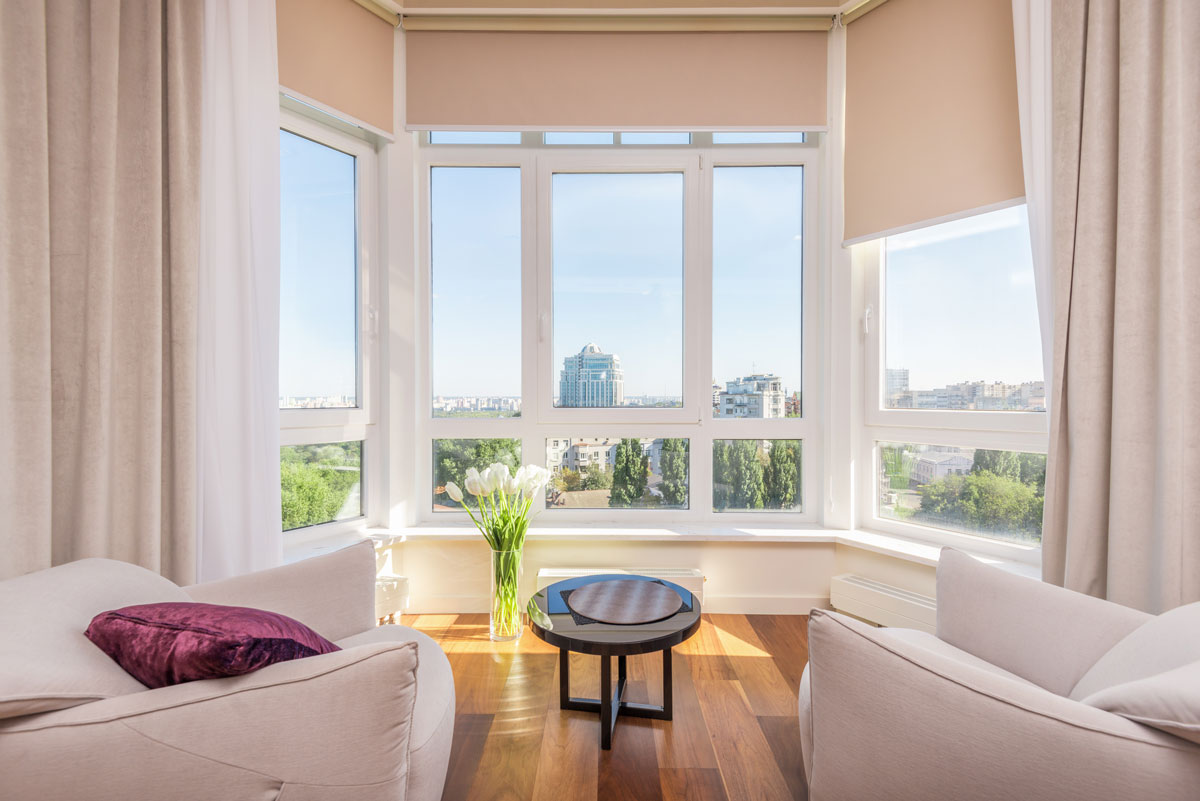
Key Property Management Software Considerations
Here are some important things to consider when evaluating property management software:
Scalability
Ensure that the software can accommodate the current and future needs of your company. It should be able to handle the number of properties you manage and support potential growth.
Desktop vs online
Property management software is available in desktop and online formats. The desktop version must be downloaded directly onto the computer of the user. Cloud-based software is accessible on any device that is connected to the internet. Users must still have security credentials to login to the program. Most property managers prefer to use cloud-based software because of the flexibility it provides, including working from a remote location and automatic software updates.
All-in-one or many?
Do you prefer an all-in-one software solution or are you willing to work with multiple software? There are advantages and disadvantages to both.
Using all-in-one software
All-in-one software keeps functions consolidated on one platform, ensures compatibility, and reduces data duplication. Less training is required due to navigation being consistent across all functions. Investing in a single software can also be cost effective. However, an all-in-one software may not offer customization or scaleability. You are also dependent on a single vendor making it difficult to switch.
Using multiple softwares
Using multiple software allows you to choose the best tool for each function. You can integrate software based on your preferences. This allows for a higher level of customization, reduced dependency on vendors, and assists with scalability. Better price terms may also be negotiated when not reliant on a single vendor. Disadvantages include integration issues, higher complexity, additional training requirements, and inconsistent user experience and reporting.

Core features
Identify the essential features your company requires, such as tenant and lease management, rent collection, maintenance tracking, accounting integration, and reporting capabilities. Make sure the software offers these core functionalities.
Ease of use
User-friendly software is crucial, especially for small businesses with limited IT resources. Consider the software’s interface, navigation, and intuitiveness. A well-designed and easy-to-use system can save time and minimize training requirements. It’s also important to evaluate the tenants’ experience. If tenants are unable to navigate the software and not submit their rent payment for example, then it may not be a good fit.
Customization
Determine if the software allows customization to match your specific property management processes and workflows. Flexibility to adapt the software to your needs can streamline operations and improve efficiency.
Integration
Check whether the software integrates with your current tools and systems, such as accounting software or online payment platforms. Integration reduces manual data entry and improves data accuracy.
Mobile friendly
Verify if the software offers a mobile app or a responsive web interface. Mobile access enables property managers to perform tasks on the go, such as responding to maintenance requests or accessing property information remotely.
Customer support
Evaluate the level of customer support provided by the software vendor. Prompt and reliable support is crucial for troubleshooting issues and addressing questions or concerns that may arise during software implementation and usage.
Security and data protection
Property management software handles sensitive information, including financial and personal tenant data. Ensure that the software follows industry-standard security practices, such as encryption, data backups, and access controls, to safeguard your data.
Pricing and affordability
Consider the software’s pricing structure, including any upfront costs, ongoing subscription fees, and additional charges for extra features or user accounts. Balance the cost with the value and features the software offers. In general, software for commercial properties is more expensive than for residential properties. They can require more advanced features and functionality which is reflected in the price.
User reviews and reputation
Research the software provider’s reputation and read user reviews to get an understanding of their track record and customer satisfaction. It can provide insights into the software’s reliability, support quality, and overall user experience.

Best Property Management Software for Canadian Property Managers Ranked
Below we take a look at property management software available in Canada from seven companies focused on small to medium-sized property management companies. We have ranked them from first to seventh based on features, pricing, customer reviews, and reputation.
Buildium
Founded in 2004, Buildium is a widely recognized property management software, with an extensive features and functionality list, suitable for small to mid-sized property owners.
Key features:
Tenant management
Rent collection
Maintenance tracking
Accounting integration
Reporting
Price:
Essential – starting at $58/mth
Growth – starting at $183/mth
Premium – starting at $375/mth
Best for
Rentec Direct
Founded in 2007, Rentec Direct provides property management software that caters to small landlords and property managers. Ideal for users that don’t have a lot of business or accounting knowledge. A good option for property managers that are just starting out.
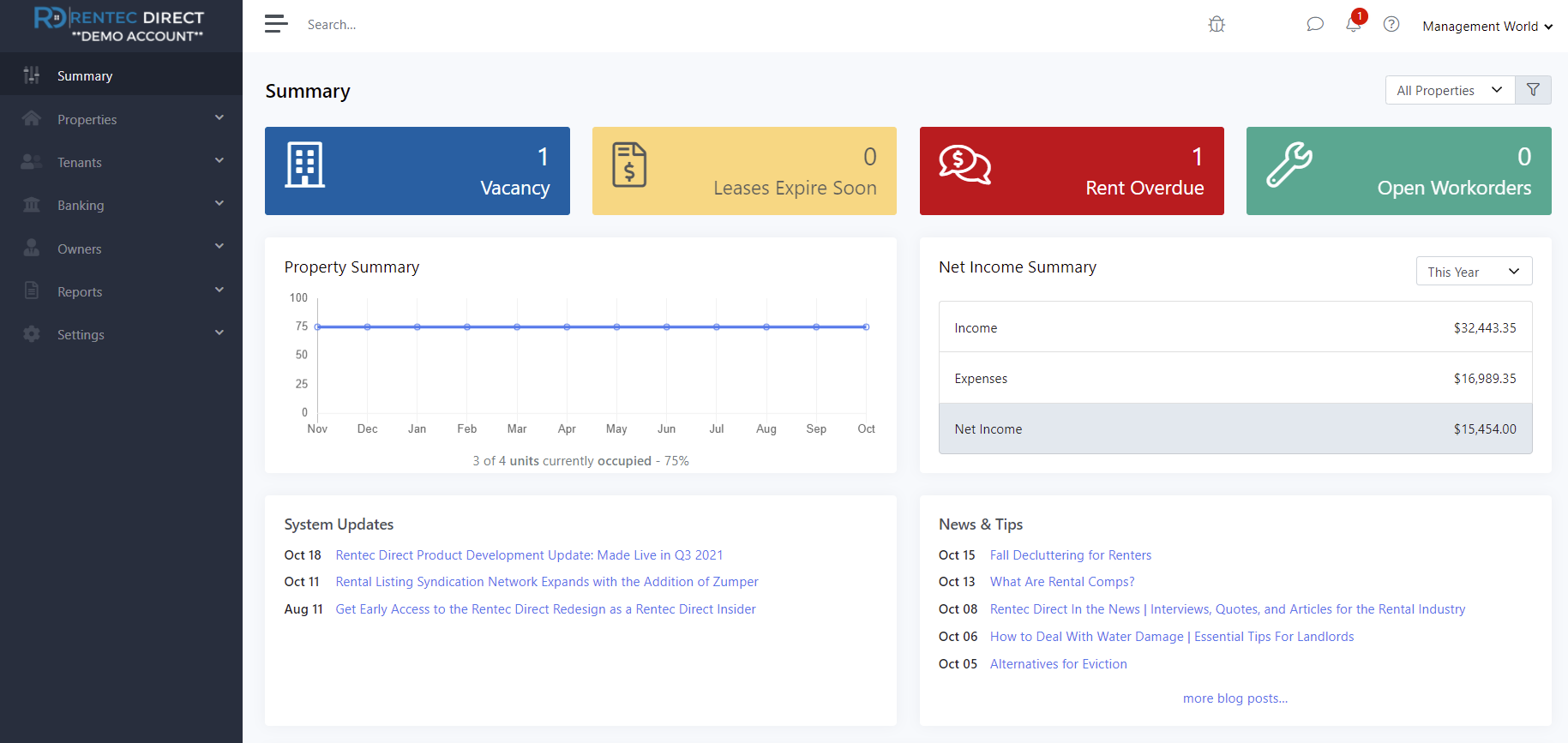
Key features:
Tenant screening
Lease tracking
Online rent payments
Accounting integration
Maintenance requests
Pros:
- Good for beginners and non-tech-savvy users
- Easy setup
- Marketing website with customizable pages
Cons:
- Dated interface
- Few communication features
- Minimum number of properties required to use tenant screening tool
- Limited custom reporting
Price:
Rentec Pro (for Landlords and Investors):
Price is based on the number of units: 1-25 units – $45/mth, 25+ units – approx. +$1.80/month/unit,
Tenant screening is in addition, ranging from $10-$18. Rent collection is available at an additional cost.
Rentec PM (Property Managers managing for owners):
Price is based on the number of units: 1-20 units – $45/mth, 20+ units – approx. +$2.33/month/unit
Tenant screening is in addition, ranging from $10-$18.
Best for
AppFolio
Founded in 2006, AppFolio offers property management software that serves small to mid-sized property owners and management companies. Good for day-to-day operations including leasing, maintenance, accounting, financial planning and budgeting.
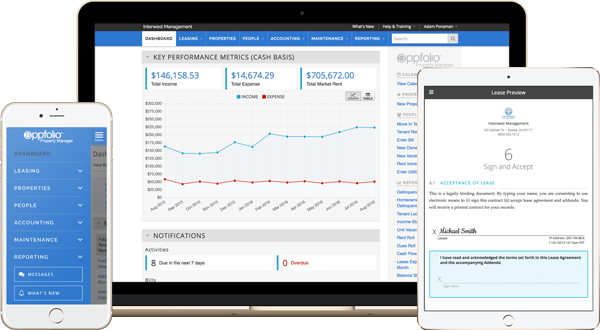
Key features:
Tenant screening
Lease management
Online rent collection
Accounting integration
Maintenance tracking
Pros:
- User-friendly portal
- Mobile app
- Easy receivables and payables tracking
- Data migration process
Cons:
- Labourious late free program
- Limited integration with third-party platforms
- Report formats
Price:
No pricing is listed, though you can get a quote by contacting them.
Pricing as of May 2024:
Core (for small to mid-size portfolios):
Starting at $1.40 per unit/per month, 50 units, $280 minimum monthly fee.
Plus (Designed for portfolios managing 1,000+ units):
Starting at $3.00 per unit/per month, 500 units, $1,500 minimum monthly fee.
Best for
Rent Manager
Rent Manager offers comprehensive property management software that caters to small to mid-sized property owners and management companies.
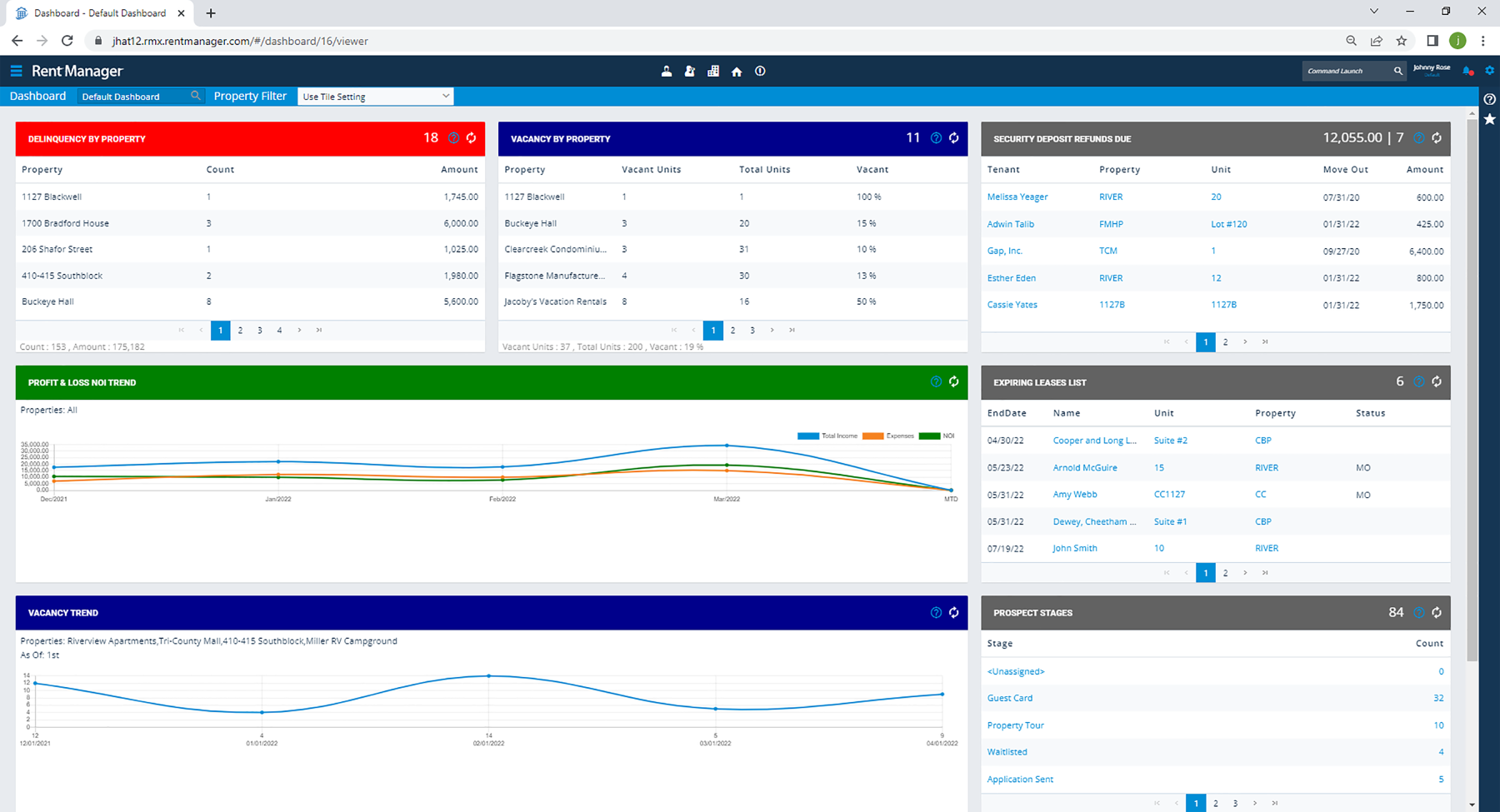
Key features:
Tenant and lease management
Accounting integration
Maintenance tracking
Reporting
Pros:
- Financial statements
- Customizable options
- Maintenance management
Cons:
- Training
- Limited tenant communication function
- Reliability of tenant portal
- Less geared toward commercial properties
Price:
No pricing is listed, though you can get a quote by contacting them.
Pricing as of May 2024:
Basic:
$1.00 per unit, unlimited number of users, $200 monthly minimum. Implementation package is 2 times the monthly fee.
Plus:
$150 per unit, unlimited number of users, $300 monthly minimum. Implementation package is 2 times the monthly fee.
Best for
Propertyware
Founded in 2001, Propertyware provides property management software suitable for small property owners and management companies.
Key features:
Tenant management
Lease tracking
Online rent payments
Accounting integration
Maintenance requests
Pros:
- Automated report scheduling
- User-friendly billing
- Real-time transactions/balances
- Open API (higher tier subscriptions only)
Cons:
- Limited reports
- Inspection management
- Accounting adjustments
- Not aimed at commercial or large properties
Price:
Basic:
$1.00 per unit/mth, $250 monthly minimum plus Implementation Fee of 2 times the monthly subscription price.
Plus:
$1.50 per unit/mth, $350 monthly minimum plus an Implementation Fee of 2 times the monthly subscription price.
Premium:
$2.00 per unit/mth, $450 monthly minimum plus an Implementation Fee of 2 times the monthly subscription price.
Additional services:
Maintenance Contact Center: $1.10/unit/month
Leasing Contact Center: $2.85/unit/month
Professional Websites: $99/month
AssetProtect: $12/policy/month
Best for
Best for users that manage a small number of residential properties.
Yardi Breeze
Founded in 1984, Yardi Breeze offers property management software designed specifically for small property owners. Ideal for users already familiar with accounting and bookkeeping practices.
Key features:
Tenant screening
Lease management
Rent collection
Accounting integration
Maintenance tracking
Pros:
- Accounting reports
- User-friendly dashboard
- Resident screening
- Online support chat
Cons:
- Implementation process
- Fee tracking
- Feature add-ons get expensive
Price (USD):
Residential:
Breeze – $1.00 per unit/per month, $100 monthly minimum (based on 12-month agreement)
Breeze Premier – $1.00 per unit/per month, $400 monthly minimum (based on 12-month agreement)
Commercial:
Breeze – $2.00 per unit/per month, $200 monthly minimum (based on 12-month agreement)
Breeze Premier – custom pricing
Affordable:
Breeze Premier – $3.00 per unit/per month, $400 monthly minimum (based on 12-month agreement)
Self Storage:
Breeze Premier – custom pricing
Associations:
Breeze Premier – $1.00 per unit/per month, $400 monthly minimum (based on 12-month agreement)
MH:
Breeze Premier – custom pricing
Best for
Best for users already familiar with accounting and bookkeeping practices.
SimplifyEm
Founded in 2006, SimplifyEm provides property management software that is suitable for small landlords and property managers.
Key features:
Tenant management
Rent collection
Accounting integration
Maintenance tracking
Pros:
- Low cost
- Easy to use
- Tenant rent collection set up
- Tenant communication history
- Online support chat
Cons:
- Only offers basic reporting
- Redundant data entry
- Inadequate support
- No app for mobile users
Price:
Up to 10 units – $40/mth
Up to 20 units – $50/mth
Up to 30 units – $60/mth
Up to 50 units – $75/mth
Up to 75 units – $95/mth
Up to 100 units – $115/mth
Add increments of 10 units – $10 per extra 10 units per month
Up to 2000 units – $2015/mth
Best for
Best entry-level property management software.
Conclusion
Property management software can be a powerful tool that streamlines processes for everything from advertising properties, tenant communication, to collecting rent and more. There are many considerations when choosing your software including scalability, ease of use, customer support, data security, and price. Ultimately, it’s important to consider your specific requirements, budget constraints, and the unique needs of your property management business to make the right choice.
Share this content with a friend:
A better way to get paid
Withdraw money directly from your customer’s bank account when their payments are due. Schedule one-time or recurring payments to get paid on time.
